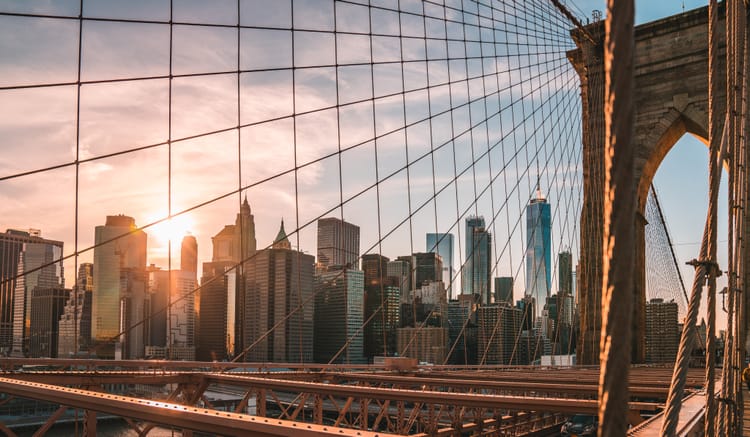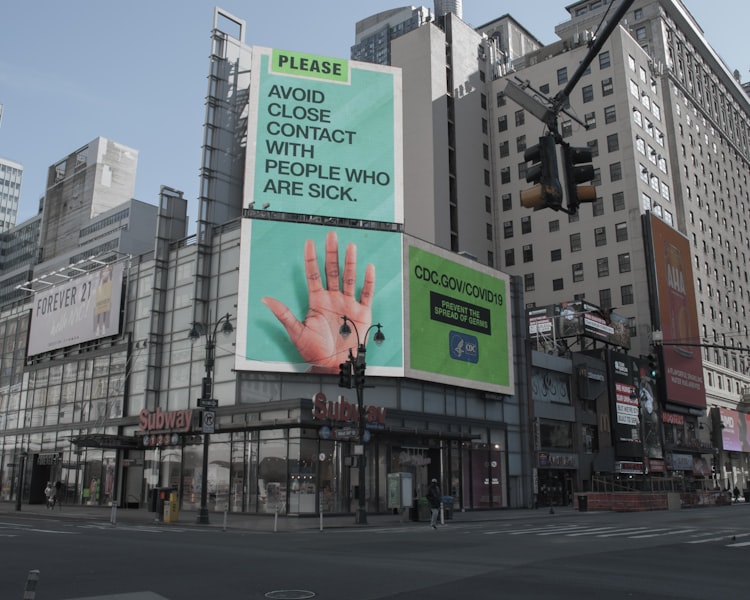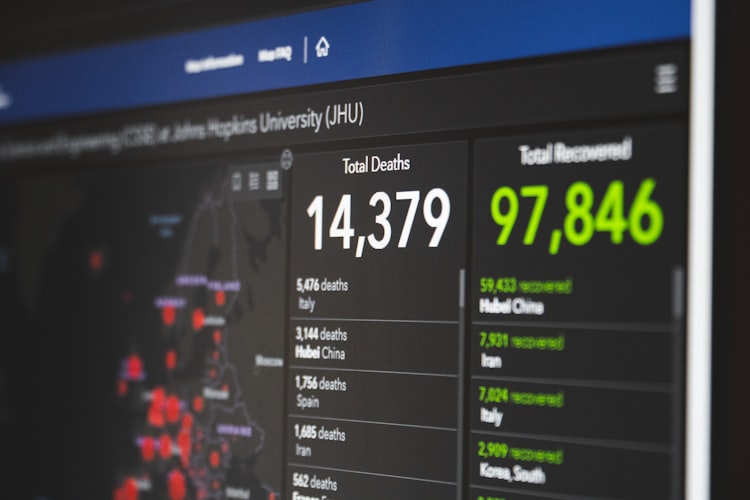Coronavirus – Update from NYC
In the past week, New York City has become the global epicenter of the fight against Coronavirus. I’ve never experienced the city and the world changing so quickly. The days feel like months and the weeks feel like years.
This is now our best-case scenario.[1] A far scarier and perhaps more likely reality is that the initial shutdown and quarantines in the West are inadequate, leading to needless deaths in addition to a protracted recession. John Hempton minces no words.[2]
I regard the current course of English speaking democracies (other than New Zealand) as mass murder by the political elite. I think history will regard it that way too.
We’re still in the early days of this crisis. Let’s dig in.
Mood in Manhattan
New York has been eerie lately. When I walk outside, it feels like I’m in the movie I Am Legend. Almost all businesses are boarded up. While restaurants can still offer takeout and delivery, most have shuttered entirely, leaving behind handwritten signs on the doors saying they will be closed until further notice. I worry for the small businesses that will crumble due to this pandemic. One small bright spot is a local bar that has reinvented itself as a general store selling soap, toilet paper, and other essentials.
On calls with family and friends, when leaving grocery stores and delis, and even at the end of work meetings, “Stay safe” has replaced “Goodbye”. But we’re experiencing nothing compared to what is going on at the front lines.
The front lines is an apt analogy; it feels like we’re at war. NYU Medical School is graduating students early so that they can aid the fight against COVID-19. A Navy hospital ship has been dispatched to the city. The Army Corps of Engineers is building temporary hospitals. The American colossus is awakening. Perhaps our fear will save us.
How long has the virus been here? Hospital reports of flu-like illnesses began climbing weeks ago. Testing capabilities have only recently ramped up, but they have ramped quickly. People we know have started testing positive; this disease is no longer an abstraction. Any of us could be next.
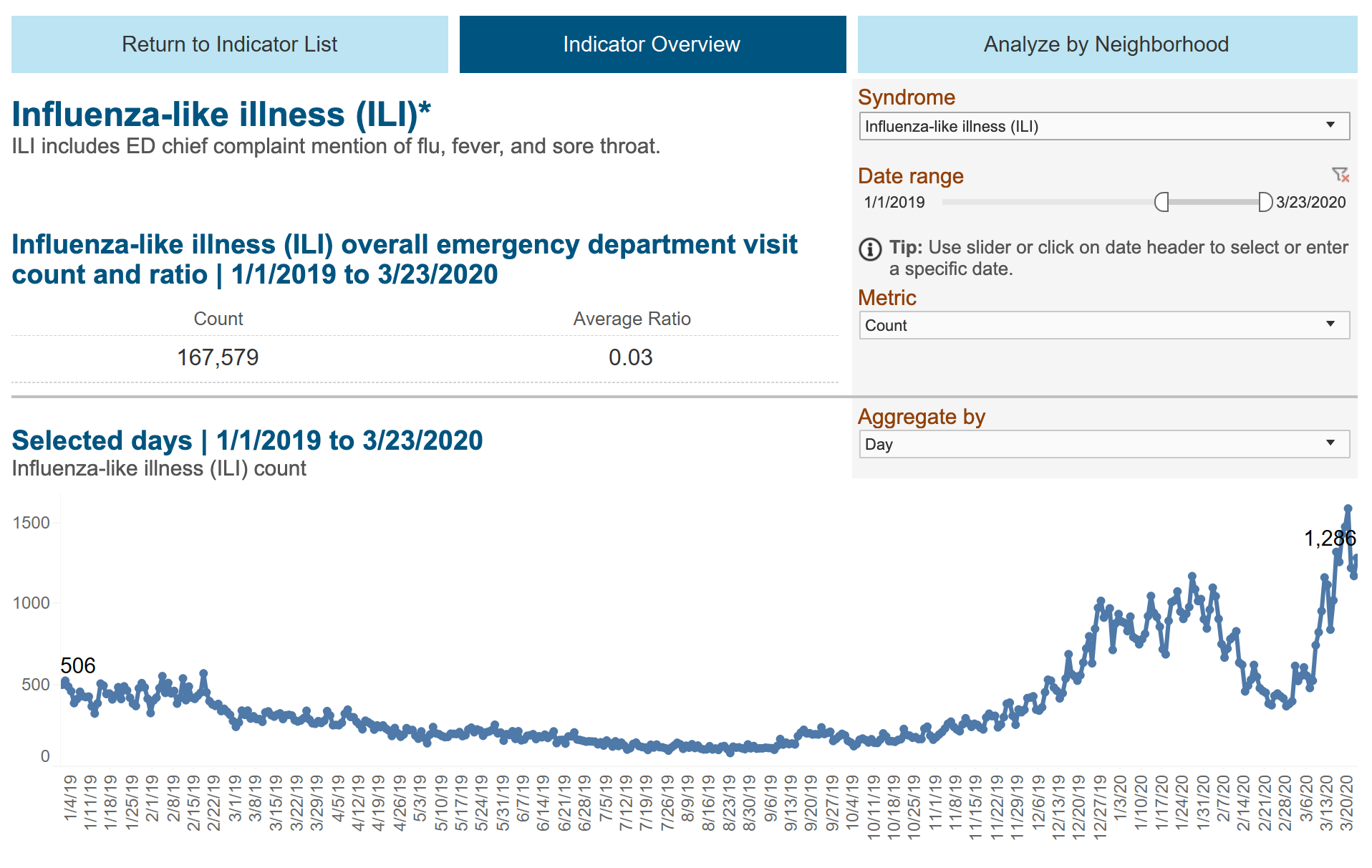
I’m torn as to whether or not Governor Cuomo is doing a good job. My emotional side sees that he is saying the right things, has put aside political games, and is demonstrating strong leadership. At the same time, I see graphs like the below and think that if he had acted earlier in shutting down the state, we wouldn’t need to surrender to the virus.
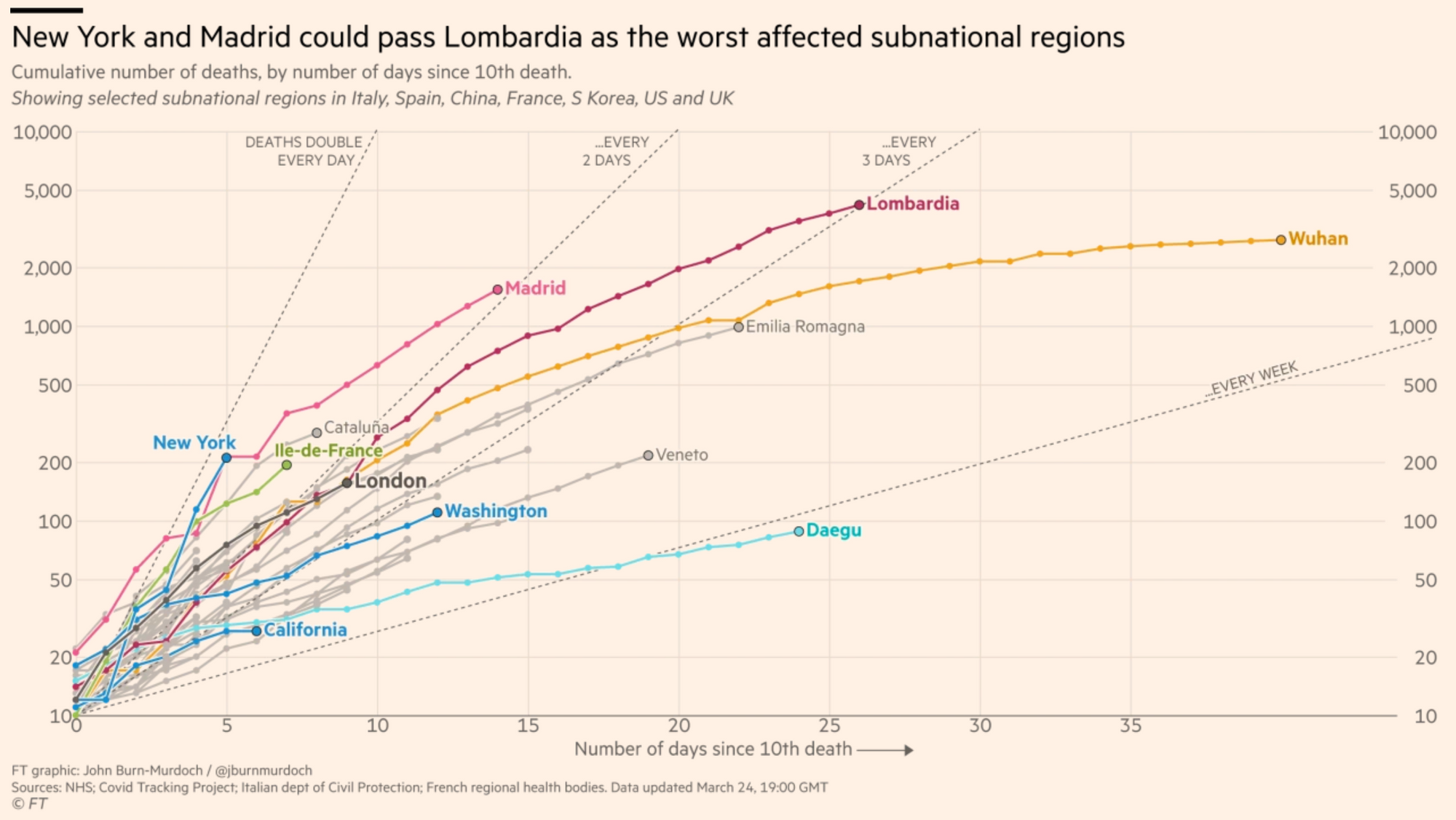
I now understand why the Romans nominated a dictator in times of crisis. I wish that our politicians had the same sense of duty, rather than prioritizing their investment portfolios. I wish that I could pay my taxes directly to Bill Gates, instead of the government.
In addition to the public health crisis, the economic sky has come down. The stock market dropped 25% in a 10-day period. Unemployment claims are expected to jump by an order of magnitude week-over-week. Tax Day – Tax Day! – has been pushed back.
There are rumblings that the medicine is worse than the disease. But we must stay the course; the worst possible action to take would be the epidemic yoyo.
I wonder if this pandemic will lead to a de-urbanization movement. What is the point of living in New York and paying the high rent if you can’t experience any of the benefits? All of the restaurants, bars, shows, and museums have shut down. When we are all living our lives online, why live it from a shoebox-sized apartment?
Outstanding Questions
-
What is the true denominator of cases? There is some evidence that many who test positive are asymptomatic.
- I’d like to see a cohort analysis through time. Do those people develop symptoms later on?
- What is the false positive (and false negative) rate?
- Of course, this doesn’t matter right now with regards to the systemic risk of overwhelming our healthcare resources. But the more data we have, the better the modeling we can do, which directly translates to better decisions made to combat this crisis.
-
How will information be shared in crises of the future?
- There is a need to share medical knowledge and best practices regarding COVID treatment at a much quicker rate than peer review allows. Right now, social media is serving this role, but in the future a company will be built around this.
- Some of the highest-level discussion about Coronavirus is taking place in the COVID19 subreddit and on Slate Star Codex.
-
Do other countries have the political will to recreate the suppression approach that was so successful in South Korea and Taiwan?
- Would this require a military takeover in the U.S.? At what point would people welcome this?
-
Bureaucracies like the FDA and hospitals work well under normal circumstances. How can we improve them in order to help people in a crisis?
- The FDA has stopped decentralized in-home testing.
- Hospitals have so much red tape with regards to PPE donations that groups of medical students coordinate donations on their own.
-
How will the global order be reshaped by this crisis? Will China emerge stronger? Will America degenerate on its own?
-
What is going on with Japan? Are its numbers really as good as the country claims, solely due to a courteous, compliant, and conformist population?
-
I will say this: when Japan had major natural disasters in 2011 I praised the response and wrote a long blog post about how things were much better than commonly believed.
— Patrick McKenzie (@patio11) March 20, 2020
I have written no such post this year. That is not because of insufficient personal interest in the topic.
-
-
Which drugs actually help? What non-obvious solutions to this problem should we consider? Should we use more copper in public spaces?
-
Jerry Seinfeld voice: What’s the deal with masks?
-
I’ve had longstanding doubts about the viability of the on-demand delivery industry. Is this finally the end of VCs subsidizing our meals?
What's Next?
Things will get worse before they get better. It’s going to be a tough for a while.
All of this has happened before. All of this will happen again.
Why is the VP of Growth at an education startup writing the best analysis of the current situation? I’m glad he did – these two write-ups saved lives. But in the future (especially in an age of misinformation), epidemiologists should partner with marketers to get more messages like this out into the world. ↩︎
Brought to you by the same person who pulled back the curtain on Valiant’s scandals. ↩︎

